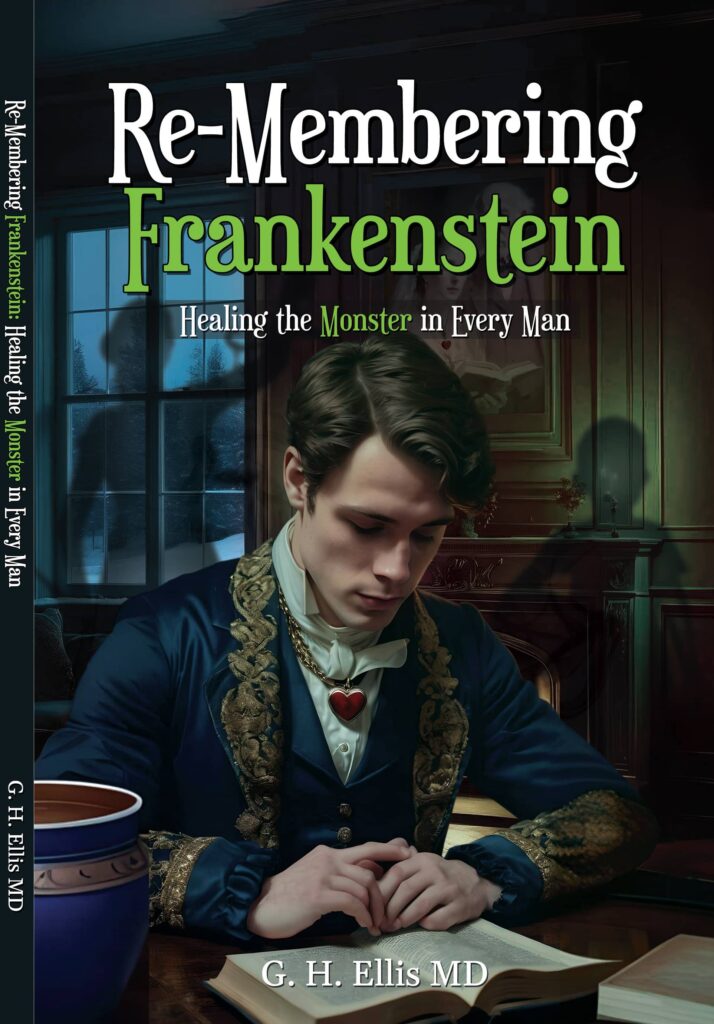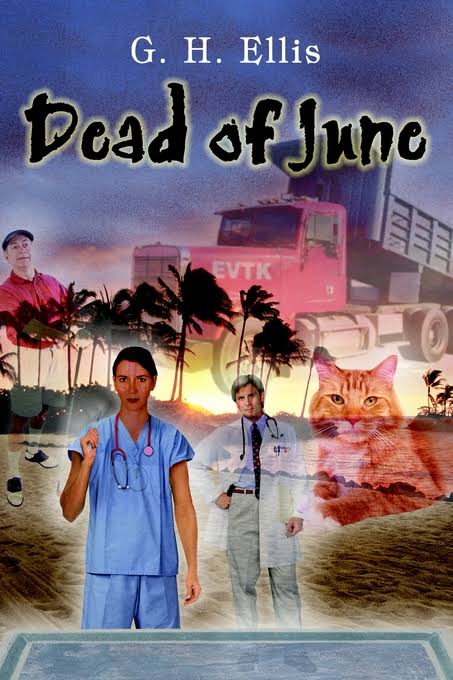Books 📚
The books such as “Re-Membering Frankenstein: Healing the Monster in Every Man” and “Dead of June” provide a unique blend of psychological insight, literary analysis, and thrilling narratives.

Re-Membering Frankenstein: Healing the Monster in Every Man (2nd Edition) 📚
Victor Frankenstein is a contemporary figure grappling with mid-life crises, offering readers a unique therapeutic lens through Mary Shelley’s classic. Integrating Jungian psychology and Internal Family Systems (IFS) therapy, Ellis explores the duality of Frankenstein’s monsters—both the created being and Victor’s internal psychological struggles. This book provides practical exercises and literary analysis to guide men toward self-awareness and emotional healing, making it a valuable resource for personal growth and psychological understanding.

Dead of June 📚
“Dead of June,” uses the genre of forensic pathology to explore the career decision angst of a twenty-eight-year-old women pathology resident. The intrigue entangles the resident, her faculty, the local police, and large local corporation in a trail of murders.
Essays 📝
My essays, including “Pirates of the Caribbean: A Modern Mythic Guide to Surviving Perilous Times” and “POTC and ME,” analyze the “Pirates of the Caribbean” films as modern epics that mirror contemporary struggles and personal journeys.
POTC and ME 📝
In the essay “POTC and ME,” the author, G.H. Ellis, draws parallels between the “Pirates of the Caribbean” (POTC) film series and the significant phases of his own life. The essay posits that any great epic, including POTC, connects deeply with the universal human psyche, evoking primal emotions and energy. Ellis uses the five movies in the POTC series as a framework to reflect on his personal journey, highlighting how each film corresponds to a distinct stage in his life.
Pirates of the Caribbean: A Modern Mythic Guide to Surviving Perilous Times 📝
“Pirates of the Caribbean: A Modern Mythic Guide to Surviving Perilous Times” by G.H. Ellis and co-author Janice Mutch examines the “Pirates of the Caribbean” film series as a modern epic that resonates deeply with the collective human psyche. The book explores how the movies reflect and amplify contemporary struggles and themes such as elevating feminine archetypes, developing a balanced hero image, reclaiming the wounded masculine heart, stewarding a sustainable relationship with nature, evolving a new spirituality, and reconstructing capitalism. Each movie is analyzed for its mythic themes and characters’ journeys, offering insights into personal and collective transformation.
Plays 🎭
In the realm of theater, my plays such as “Two Wavy Lines” and “The Tragedy of McCain” offer a blend of satire, political commentary, and introspective exploration. “Voting Rites,” a satirical comedy, humorously critiques American politics through the lens of vampire characters. Each piece invites you to journey through complex narratives and thought-provoking themes.

Two Wavy Lines 🎭
The play, “Two Wavy Lines,” is a one act exploration of mid-life and death transitions for an educated modern American family in the spiritual and physical realms with astrological tinges. Twins are summoned to house of their nearly dead grandfather possibly for the last time and get psychologically bombarded.
The Tragedy of McCain 🎭
“The Tragedy of McCain” is a satirical one-act play that merges political commentary with elements of classic tragedy. It delves into the aftermath of a presidential defeat, portraying the emotional and psychological turmoil of the titular character, McCain. The narrative unfolds through his encounter with a mysterious Witch, later revealed to be Sarah Palin, highlighting themes of ambition, betrayal, and the harsh realities of political life. The play is a poignant exploration of McCain’s struggle with his downfall and the treacherous nature of political alliances.
Voting Rites 🎭
“Voting Rites” is a satirical comedy set in the living room of Vlad and Elizabeth Tepes, vampires living in Bloomington. College students Brad and Janet arrive to register them to vote as part of a political science project. The dialogue humorously critiques American politics and voter registration laws, as Vlad and Elizabeth reveal their supernatural nature. The play ends with Vlad deciding to “bring carry-in” for Elizabeth by grabbing the students, culminating in a darkly comedic bite as the curtain falls.
